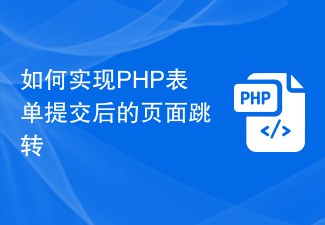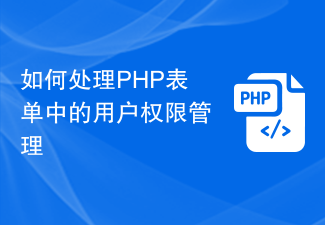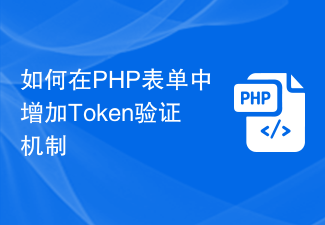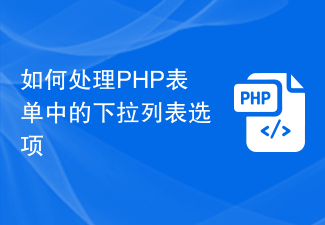How to optimize form data verification issues in Vue development
In the Vue development process, form data verification is an essential task, which can ensure that the data entered by the user meets the expected requirements. , improve system stability and user experience. However, as forms become more complex, data validation becomes more and more cumbersome. This article will discuss how to optimize form data validation issues in Vue development to improve development efficiency and code maintainability.
- Use validate plug-in
Vue has many data validation plug-ins to choose from, such as Vee-Validate and Vuelidate. These plug-ins provide a wealth of verification rules and error prompts, which can quickly verify form data. Using these plug-ins can avoid the problem of reinventing the wheel and improve development efficiency. At the same time, these plug-ins also provide flexible configuration options to meet various business needs. - Encapsulating data verification method
In order to improve the maintainability of the code, we can encapsulate the data verification logic into a separate method or component. This can decouple data verification from business logic and facilitate code reuse and maintenance. We can encapsulate the form's data validation rules into an array, and then traverse the array in the validation method to perform data validation. In this way, adding and modifying verification rules can be implemented by modifying the array, without modifying the code of the verification method. - Asynchronous data verification
In some scenarios, we need to perform asynchronous data verification, such as verifying whether the user name already exists. For this situation, we can use Promise to handle asynchronous data verification. In the data verification method, a Promise object is returned, and the verification result is expressed through resolve or reject. This ensures that the form submit button is unavailable before the asynchronous verification is completed, preventing users from misoperation. - Custom verification rules
Verification plug-ins usually provide some common verification rules, but in specific business scenarios, we may need some custom verification rules. For this situation, we can achieve this by extending the rules of the verification plug-in. For example, the Vee-Validate plug-in provides the extend method to easily extend the verification rules. By customizing verification rules, we can quickly implement form data verification according to specific business needs. - Error prompts and feedback
Data verification not only needs to verify the data entered by the user, but also needs to give the user a clear error prompt and feedback. In Vue development, we can implement error prompts and feedback by binding the value and error attributes of the form component. When data verification fails, the error information is passed to the error attribute, and then the error information is displayed in the template according to the error attribute. This improves the user experience and helps users better understand and resolve errors.
In summary, optimizing form data verification issues in Vue development can improve development efficiency and code maintainability. By using data verification plug-ins, encapsulated data verification methods, asynchronous data verification, custom verification rules, error prompts and feedback, etc., we can better handle form data verification issues and improve system stability and users. experience. I hope this article can be helpful to Vue developers in optimizing form data validation.
The above is the detailed content of Simplify Vue form validation and achieve optimal optimization. For more information, please follow other related articles on the PHP Chinese website!
 如何实现PHP表单提交后的页面跳转Aug 12, 2023 am 11:30 AM
如何实现PHP表单提交后的页面跳转Aug 12, 2023 am 11:30 AM如何实现PHP表单提交后的页面跳转【简介】在Web开发中,表单的提交是一项常见的功能需求。当用户填写完表单并点击提交按钮后,通常需要将表单数据发送至服务器进行处理,并在处理完后将用户重定向至另一个页面。本文将介绍如何使用PHP来实现表单提交后的页面跳转。【步骤一:HTML表单】首先,我们需要在HTML页面中编写一个包含表单的页面,以便用户填写需要提交的数据。
 如何处理PHP表单中的用户权限管理Aug 10, 2023 pm 01:06 PM
如何处理PHP表单中的用户权限管理Aug 10, 2023 pm 01:06 PM如何处理PHP表单中的用户权限管理随着Web应用程序的不断发展,用户权限管理是一个重要的功能之一。用户权限管理可以控制用户在应用程序中的操作权限,保证数据的安全性和合法性。在PHP表单中,用户权限管理可以通过一些简单的代码来实现。本文将介绍如何处理PHP表单中的用户权限管理,并给出相应的代码示例。一、用户角色的定义和管理首先,对用户角色进行定义和管理是用户权
 PHP表单处理:表单数据查询与筛选Aug 07, 2023 pm 06:17 PM
PHP表单处理:表单数据查询与筛选Aug 07, 2023 pm 06:17 PMPHP表单处理:表单数据查询与筛选引言在Web开发中,表单是一种重要的交互方式,用户可以通过表单向服务器提交数据并进行进一步的处理。本文将介绍如何使用PHP处理表单数据的查询与筛选功能。表单的设计与提交首先,我们需要设计一个包含查询与筛选功能的表单。常见的表单元素包括输入框、下拉列表、单选框、复选框等,根据具体需求进行设计。用户在提交表单时,会将数据以POS
 Java实现表单的实时验证与提示功能Aug 07, 2023 am 10:42 AM
Java实现表单的实时验证与提示功能Aug 07, 2023 am 10:42 AMJava实现表单的实时验证与提示功能随着网络应用的普及和发展,表单的使用也变得越来越重要。表单是网页中用于收集和提交用户数据的元素,例如注册或登录页面的表单。在用户填写表单时,经常需要对其输入的数据进行验证和提示,以保证数据的正确性和完整性。在本文中,我们将介绍如何使用Java语言实现表单的实时验证与提示功能。HTML表单的搭建首先,我们需要使用HTML语言
 如何在Nette框架中使用表单和验证?Jun 04, 2023 pm 03:51 PM
如何在Nette框架中使用表单和验证?Jun 04, 2023 pm 03:51 PMNette框架是一款用于PHPWeb开发的轻量级框架,以其简单易用、高效稳定的特点受到了广泛的欢迎和使用。在开发Web应用时,使用表单和验证是不可避免的需求。本文将介绍如何在Nette框架中使用表单和验证。一、表单构建在Nette框架中,表单可以通过Form类来创建。Form类在NetteForms命名空间中,可以通过use关键字引入。useNetteF
 如何使用PHP处理表单中的数据搜索和过滤Aug 12, 2023 pm 04:00 PM
如何使用PHP处理表单中的数据搜索和过滤Aug 12, 2023 pm 04:00 PM如何使用PHP处理表单中的数据搜索和过滤概要:当用户通过表单提交数据时,我们需要对这些数据进行搜索和过滤,以便得到所需的结果。在PHP中,我们可以使用一些技术来实现这些功能。本篇文章将介绍如何使用PHP处理表单中的数据搜索和过滤,并提供相应的代码示例。简介:表单通常用于收集用户的输入数据,这些数据可以是文本、数字、日期等等。一旦用户提交表单,我们就需要对这些
 如何在PHP表单中增加Token验证机制Jun 24, 2023 pm 04:54 PM
如何在PHP表单中增加Token验证机制Jun 24, 2023 pm 04:54 PM在Web开发中,表单是用户和服务器之间沟通的重要渠道。为确保安全,我们需要在表单提交时添加Token验证机制来避免恶意攻击者的进攻。Token验证的基本原理是:服务器生成随机数,在表单中添加隐藏域的方式将Token传递给客户端,客户端提交表单时将Token发送回服务器,服务器验证Token的正确性,如果匹配,则允许表单提交,否则拒绝提交。下面我们将介绍在PH
 如何处理PHP表单中的下拉列表选项Aug 11, 2023 am 10:21 AM
如何处理PHP表单中的下拉列表选项Aug 11, 2023 am 10:21 AM如何处理PHP表单中的下拉列表选项下拉列表是Web表单中常用的元素,它允许用户从预先定义的选项中选择一个或多个值。在PHP中,我们可以通过一些简单的代码实现下拉列表的处理。本文将向你展示如何使用PHP来处理表单中的下拉列表选项。HTML代码中的下拉列表通常使用<select>和<option>标签来定义。<select>标


Hot AI Tools

Undresser.AI Undress
AI-powered app for creating realistic nude photos

AI Clothes Remover
Online AI tool for removing clothes from photos.

Undress AI Tool
Undress images for free

Clothoff.io
AI clothes remover

AI Hentai Generator
Generate AI Hentai for free.

Hot Article

Hot Tools

Safe Exam Browser
Safe Exam Browser is a secure browser environment for taking online exams securely. This software turns any computer into a secure workstation. It controls access to any utility and prevents students from using unauthorized resources.

SublimeText3 Linux new version
SublimeText3 Linux latest version

SublimeText3 Chinese version
Chinese version, very easy to use

Notepad++7.3.1
Easy-to-use and free code editor

SublimeText3 Mac version
God-level code editing software (SublimeText3)






